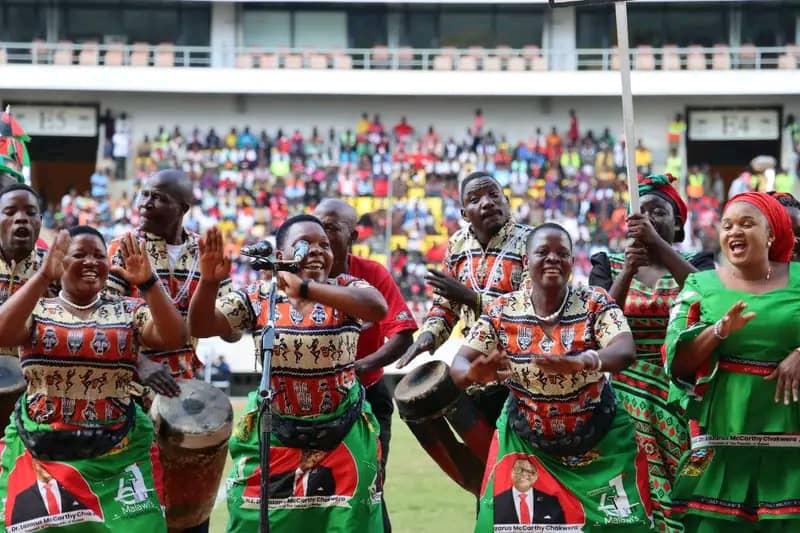Comrade Imran Jumbe
By Comrade Imran Jumbe
In the long and often turbulent story of Malawi, few names carry the historical weight, political gravity, and cultural depth as the name Jumbe. To a casual observer, it might register as just another surname—but to those who understand its past, Jumbe is more than a name. It is a symbol. A living echo of governance, diplomacy, resistance, and the enduring struggle for justice.
Roots in Authority: The First Jumbes of Nkhotakota
The legacy begins on the central lakeshore of Lake Malawi in the mid-1800s, in the bustling trade town of Nkhotakota. Here, Sultan Jumbe reigned—not as a mere chief, but as a merchant-king, spiritual leader, and diplomatic force. Of Swahili-Arab descent, he presided over a strategic trading hub that linked inland Africa to the Indian Ocean via Zanzibar, dealing in ivory—and tragically, in human lives.
It was here in 1861, beneath a now-famous tree in Nkhotakota, that Scottish missionary and explorer Dr. David Livingstone met Sultan Jumbe. The meeting was historic. Livingstone pleaded with the Jumbe to abandon the slave trade. It was not just a moral appeal—it was a challenge to power, profit, and tradition.
Though the transition was not immediate, this meeting is remembered as a turning point. For the first time, a powerful African ruler was being asked to choose morality over commerce. And that appeal still echoes today.
A Title That Became a Legacy
After Sultan Jumbe, the title “Jumbe” spread among the Yao people, reaching Mangochi, Makanjira, Salima, and other regions. The title eventually became a surname, but it retained its deep cultural significance.
To bear the name Jumbe meant more than heritage—it meant responsibility. It meant standing at the crossroads of tradition and transformation, carrying the burdens of justice, wisdom, and communal survival.
As an African proverb says:
“When the roots are deep, there is no reason to fear the wind.”
The roots of the Jumbes were—and are—profound.
The Jumbes in the Colonial Struggle
During the era of British colonization, the Jumbes did not remain silent. They resisted not just to preserve their titles, but to protect their people’s autonomy. Whether through negotiation or confrontation, the Jumbes opposed colonial incursions with both dignity and courage.
In them, the people saw leaders who would not sell their identity for comfort. The Jumbes were not collaborators of oppression—they were its critics. And in that defiance, they became symbols of integrity.
From Traditional Authority to Modern Political Awareness
In present-day Malawi, as the country grapples with democratic uncertainties, the legacy of the Jumbes feels more relevant than ever.
They remind us that real leadership is not about position but principle. Not about control, but conscience. In a political environment increasingly stained by violence, intimidation, and disregard for civil rights, the values the Jumbes lived by—justice, courage, moral clarity—are urgently needed.
When peaceful demonstrators are attacked in full view of state security forces, we must ask ourselves: what kind of democracy are we building?
What would the old Jumbes say today, watching citizens beaten and silenced? What would they say of a police force that shields perpetrators rather than the people?
“When the Elephants Fight…”
They would remind us, perhaps painfully, of another proverb:
“When the elephants fight, it is the grass that suffers.”
And today, the grass is the Malawian people—trampled, bruised, and losing hope.
But the legacy of the Jumbe tells us that even in darkness, leadership grounded in ethics can prevail. It tells us that history watches—and remembers.
The Call for Moral Leadership
Leadership is not an entitlement. It is a sacred trust. From State House to village courts, the legacy of the Jumbes calls every leader to ask: Am I serving or ruling? Am I remembered for courage or compromise?
Power without moral purpose is a curse. And silence in the face of injustice is complicity.
The police cannot continue to stand idle as citizens are attacked. Politicians cannot continue to stoke division while claiming unity. And Malawians—whether they carry the name Jumbe or not—must awaken to the power of memory, history, and civic responsibility.
For the footsteps of the past are never far behind. And to ignore them is to walk blindfolded into judgment.
The Jumbes may be gone from thrones, but their spirit still speaks. Will we listen?




